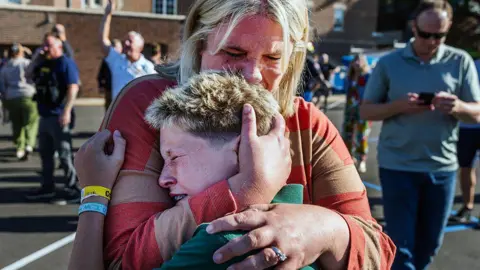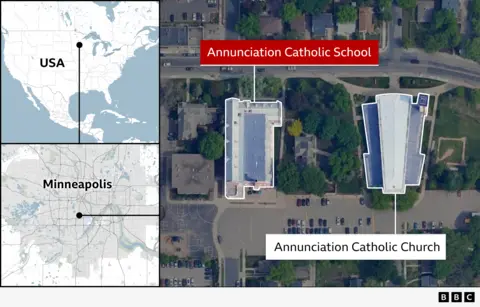As Saturdays roll around, they transform into grim reminders for Elizabeth Young of the tragic loss of her daughter, Jade, murdered amidst the chaos of a busy shopping centre in Bondi Junction, Sydney. “I dread the weekends,” Elizabeth confessed, haunted by the violent memories that shattered their family. Over a five-week coronial inquest, Elizabeth and other families recounted their harrowing experiences, grappling with their loved ones’ senseless murders during an attack that left six dead and ten wounded, including a baby.
The violent chaos erupted on an ordinary autumn afternoon, as Joel Cauchi, a 40-year-old man with a troubled history of mental health issues, walked into the popular shopping centre and unleashed terror upon unsuspecting shoppers after grabbing a knife from his backpack. Within minutes, he claimed his first victim and continued his spree, committing five murders before being shot dead by police, who had arrived just moments after the initial reports of the attack.
In their testimonies, victims' families expressed their disbelief at how someone with a long-standing psychiatric history could access a public space and cause such devastation. Elizabeth noted, “The cumulative failures of so many systems led to this tragedy,” highlighting a systemic neglect that allowed individuals like Cauchi to slip through the cracks.
Concern over the mental health system was a focal point of the inquiry. The inquest explored Cauchi’s history, dating back to his diagnosis of schizophrenia as a teenager and his relationships with various mental health professionals in the years leading to the stabbings. Despite exhibiting concerning behavior, including delusions and psychotic experiences, crucial opportunities to intervene therapeutically were missed.
In 2019, after a gradual withdrawal from medication, Cauchi’s mental state deteriorated, raising alarms among his family. Even when they sought help, the system failed to provide adequate support. The inquest’s findings revealed gaps in communication between his psychiatrist and doctors who assessed him for a gun license, as well as missed opportunities during police interactions.
Cauchi’s violent outburst shocked a nation where such acts are rare, reinvigorating discussions on public safety, mental health care, and women's safety—given that the majority of the victims were female. Numerous testimonies from security and emergency responders drew attention to procedural errors during the attack and the subsequent need for reform in training and emergency response measures.
As the inquest draws to a close, families of the victims hope for systemic changes, demanding reforms to avoid such tragedies in the future. NSW Coroner Teresa O’Sullivan emphasized this inquiry is to ensure that those lost will not be forgotten amid the push for prevention.
Yet for Elizabeth Young, the pain remains insurmountable. “My daughter was murdered by an unmedicated, chronic schizophrenic,” she lamented, stressing the dire need for Australia to confront the neglect within its mental health systems before more lives are lost to similar tragedies.



















